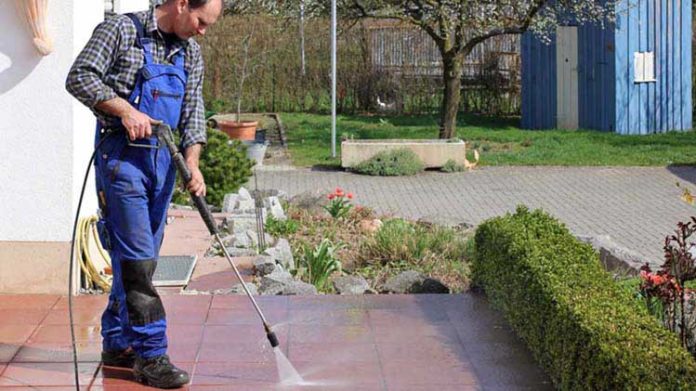
Safety should always be a top priority when operating a pressure washer. First and foremost, ensure that you are wearing appropriate protective gear, including safety goggles, gloves, and closed-toe shoes. These items will protect you from flying debris and potential injuries caused by the high-pressure water stream. Additionally, it’s advisable to wear ear protection, especially when using gas-powered pressure washers, as they can be quite loud.
Before starting the pressure washer, familiarize yourself with its controls and safety features. Always read the manufacturer’s instructions to understand how to operate the machine safely. It’s crucial to ensure that all hoses and connections are secure to prevent leaks or bursts during operation. When using a pressure washer, maintain a firm grip on the wand and keep your feet planted to maintain stability. This will help you control the direction of the spray and reduce the risk of accidents.
Lastly, be mindful of your surroundings while pressure washing. Watch for power lines, and ensure that children, pets, and other individuals are at a safe distance from the work area. Additionally, avoid directing the pressure washer toward windows or fragile surfaces, as the high pressure can cause damage. By implementing these safety precautions and best practices, you can enjoy a successful and accident-free pressure washing experience.
Proper maintenance of your pressure washing equipment is essential for prolonging its lifespan and ensuring optimal performance. After each use, take the time to clean your machine thoroughly. This involves removing any debris from the nozzle, checking the hoses for cracks, and rinsing the detergent tank if applicable. Neglecting these tasks can lead to clogs and other operational issues, ultimately affecting the effectiveness of your pressure washer.
Regularly inspect and replace worn or damaged parts, such as O-rings and filters, to keep your machine running smoothly. For gas pressure washers, it’s also important to check the oil levels and change the oil as recommended by the manufacturer. Storing your pressure washer in a dry, sheltered location can help protect it from the elements and prevent rust or corrosion. If you live in an area with harsh winters, consider winterizing your machine by draining water and adding appropriate antifreeze.
Finally, always refer to the manufacturer’s manual for specific maintenance guidelines. Some models may require seasonal checks or professional servicing to ensure they remain in peak condition. By dedicating time to maintenance, you can avoid costly repairs and enjoy the benefits of a well-functioning pressure washer for years to come.
Hobart Pressure Washing // Concrete Washing Hobart // Brick Cleaning Hobart







